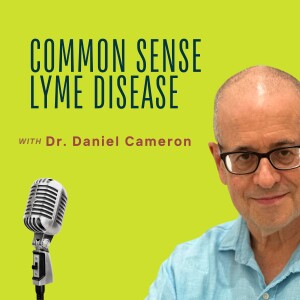
- Podcast Features
-
Monetization
-
Ads Marketplace
Join Ads Marketplace to earn through podcast sponsorships.
-
PodAds
Manage your ads with dynamic ad insertion capability.
-
Apple Podcasts Subscriptions Integration
Monetize with Apple Podcasts Subscriptions via Podbean.
-
Live Streaming
Earn rewards and recurring income from Fan Club membership.
-
Ads Marketplace
- Podbean App
-
Help and Support
-
Help Center
Get the answers and support you need.
-
Podbean Academy
Resources and guides to launch, grow, and monetize podcast.
-
Podbean Blog
Stay updated with the latest podcasting tips and trends.
-
What’s New
Check out our newest and recently released features!
-
Podcasting Smarter
Podcast interviews, best practices, and helpful tips.
-
Help Center
-
Popular Topics
-
How to Start a Podcast
The step-by-step guide to start your own podcast.
-
How to Start a Live Podcast
Create the best live podcast and engage your audience.
-
How to Monetize a Podcast
Tips on making the decision to monetize your podcast.
-
How to Promote Your Podcast
The best ways to get more eyes and ears on your podcast.
-
Podcast Advertising 101
Everything you need to know about podcast advertising.
-
Mobile Podcast Recording Guide
The ultimate guide to recording a podcast on your phone.
-
How to Use Group Recording
Steps to set up and use group recording in the Podbean app.
-
How to Start a Podcast
-
Podcasting
- Podcast Features
-
Monetization
-
Ads Marketplace
Join Ads Marketplace to earn through podcast sponsorships.
-
PodAds
Manage your ads with dynamic ad insertion capability.
-
Apple Podcasts Subscriptions Integration
Monetize with Apple Podcasts Subscriptions via Podbean.
-
Live Streaming
Earn rewards and recurring income from Fan Club membership.
-
Ads Marketplace
- Podbean App
- Advertisers
- Enterprise
- Pricing
-
Resources
-
Help and Support
-
Help Center
Get the answers and support you need.
-
Podbean Academy
Resources and guides to launch, grow, and monetize podcast.
-
Podbean Blog
Stay updated with the latest podcasting tips and trends.
-
What’s New
Check out our newest and recently released features!
-
Podcasting Smarter
Podcast interviews, best practices, and helpful tips.
-
Help Center
-
Popular Topics
-
How to Start a Podcast
The step-by-step guide to start your own podcast.
-
How to Start a Live Podcast
Create the best live podcast and engage your audience.
-
How to Monetize a Podcast
Tips on making the decision to monetize your podcast.
-
How to Promote Your Podcast
The best ways to get more eyes and ears on your podcast.
-
Podcast Advertising 101
Everything you need to know about podcast advertising.
-
Mobile Podcast Recording Guide
The ultimate guide to recording a podcast on your phone.
-
How to Use Group Recording
Steps to set up and use group recording in the Podbean app.
-
How to Start a Podcast
-
Help and Support
- Discover

Inside Lyme Podcast with Dr. Daniel Cameron
Health & Fitness:Medicine

My patient is better after early aggressive treatment for Lyme disease
My patient recovered from her chronic illness after receiving early aggressive treatment, a result that underscores the importance of this approach in managing Lyme disease.
Chronic illness resulting from Lyme disease is one of the most compelling reasons I advocate for early aggressive treatment. Lyme disease is not just a simple infection; if left inadequately treated, it can lead to a range of severe and persistent conditions. Chronic neurologic Lyme disease can cause debilitating symptoms such as cognitive impairments, severe headaches, and neuropathy. POTS (Postural Orthostatic Tachycardia Syndrome) and PANS (Pediatric Acute-onset Neuropsychiatric Syndrome) are other serious complications that can significantly disrupt a patient’s life, leading to symptoms like dizziness, rapid heart rate, and sudden behavioral changes.
Lyme arthritis, another potential outcome, can cause long-term joint pain and swelling, making daily activities difficult. Lyme carditis, which affects the heart, can lead to dangerous complications, including heart block and arrhythmias. Neuropsychiatric Lyme, involving mood disorders, anxiety, and cognitive dysfunction, adds an additional layer of complexity to the patient’s condition, affecting mental health and overall quality of life.
Given the high stakes, early aggressive treatment becomes not just an option but a necessity. By intervening quickly and with a comprehensive treatment plan, we can reduce the risk of these chronic manifestations taking hold. In my experience, starting treatment early—often before the full spectrum of symptoms has developed—can make a significant difference in the patient’s prognosis.
This approach also involves treating potential co-infections like Babesia and Bartonella from the outset, even if they haven’t been fully confirmed. These co-infections can complicate the clinical picture and contribute to the persistence of symptoms if not addressed early. By being proactive and thorough, we can give patients the best chance of a full recovery and prevent the long-term complications that make Lyme disease so challenging.
Ultimately, early aggressive treatment is about more than just addressing an infection; it’s about preventing the transition from an acute illness to a chronic, life-altering condition. It’s about giving patients the opportunity to regain their health and quality of life as quickly as possible, without the lingering fear of ongoing or worsening symptoms. The success of this approach with my patients reinforces its importance and validates the need for a proactive, comprehensive strategy in treating Lyme disease.
More Episodes
 2025-09-02
2025-09-02
 2024-11-06
2024-11-06
 2024-09-23
2024-09-23
 2024-09-19
2024-09-19
 2024-09-15
2024-09-15
 2024-09-09
2024-09-09
Create your
podcast in
minutes
- Full-featured podcast site
- Unlimited storage and bandwidth
- Comprehensive podcast stats
- Distribute to Apple Podcasts, Spotify, and more
- Make money with your podcast
It is Free
- Privacy Policy
- Cookie Policy
- Terms of Use
- Consent Preferences
- Copyright © 2015-2026 Podbean.com



